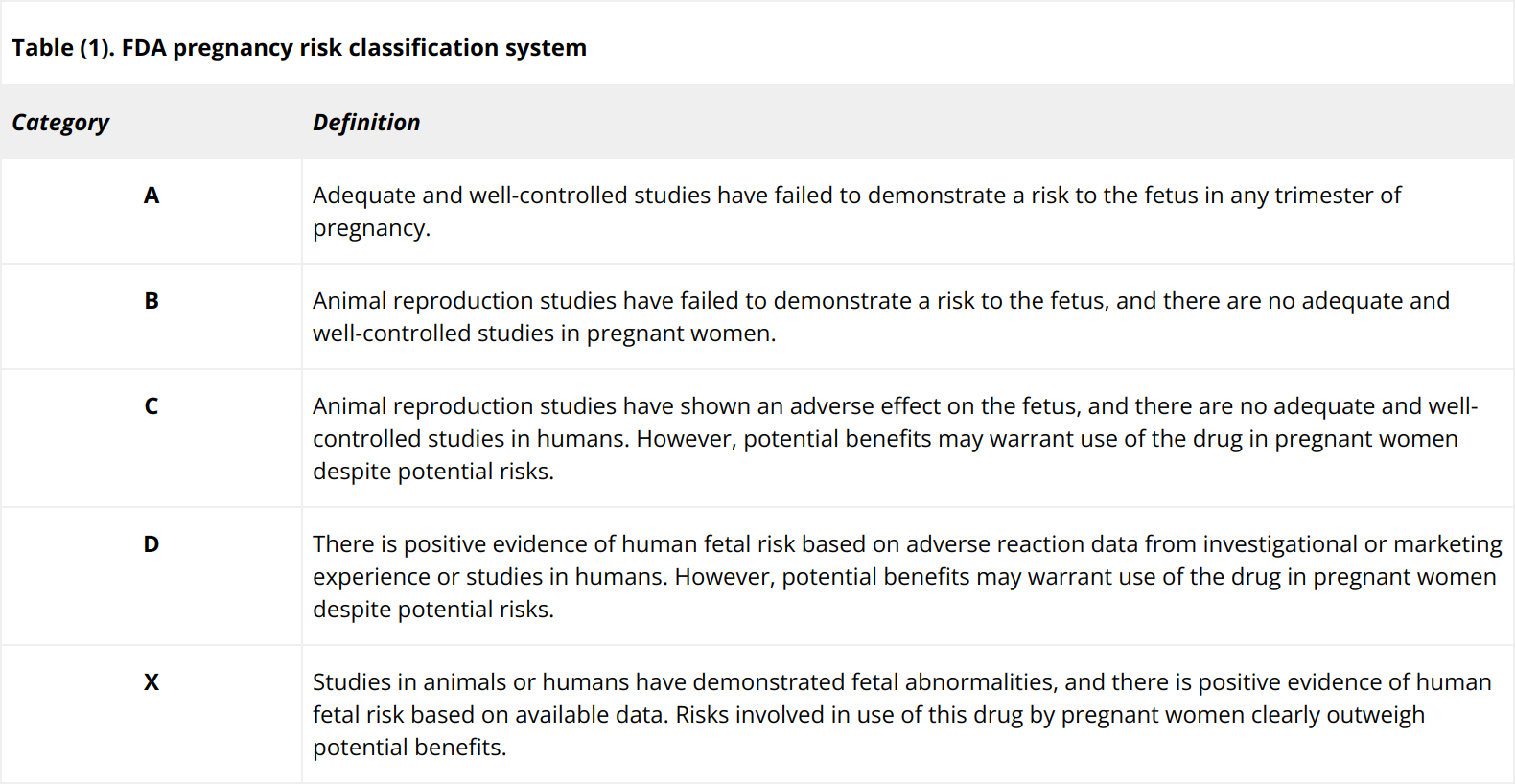Over-the-counter (OTC) medications in pregnancy
Overview
Over-the-counter (OTC) medications are pharmacologic agents that patients can buy without a physician’s prescription. They come in different forms, such as pills, creams, ointments, patches, or drops...
Diagnosis
Workup
At the initial prenatal visit, a full history and physical should be performed. Patients should be asked regarding all prescription and OTC medication use, along with herbals and supplements in order to ensure that no harmful or dangerous substances are being used. Despite their availability, certain OTC medications can have significant side effects, interact with other medications, and can be toxic when exceeding recommended doses. Patients should therefore be cautious and aware of these issues when taking OTC medications.
Comments
OTC medications are most commonly used for treatment of cough/cold, allergies, gastrointestinal issues, skin rashes/lesions, and pain relief. In general, pregnant women are excluded from clinical trials to determine drug safety, and the majority of information regarding fetal effects results from animal studies.
- Due to this lack of information, many OTC medications are not rated as category A according to the FDA risk classification system (table 1).
- Certain medications are considered to be safe in pregnancy due to widespread use with no well-known association with teratogenicity (table 2), whereas others have been known to have a causal relationship with adverse effects in pregnancy (table 3).
- The most sensitive period during a pregnancy is the first trimester due to organogenesis. Therefore, any medications that are not absolutely essential should be avoided during this time.
Despite claims regarding the relative safety of these products, questions remain about their risks in pregnancy. For example, pseudoephedrine was considered low risk based on older cohort studies, but newer data show some association with birth defects such as hemifacial microsomia, small intestinal atresia, and gastroschisis.
References
- Servey J, Chang J. Over-the-Counter Medications in Pregnancy. Am Fam Physician. 2014 Oct 15;90(8):548-55.
- Powers EA, Tewell R, Bayard M. Over-the-Counter Medications in Pregnancy. Am Fam Physician. 2023 Oct;108(4):360-369.





